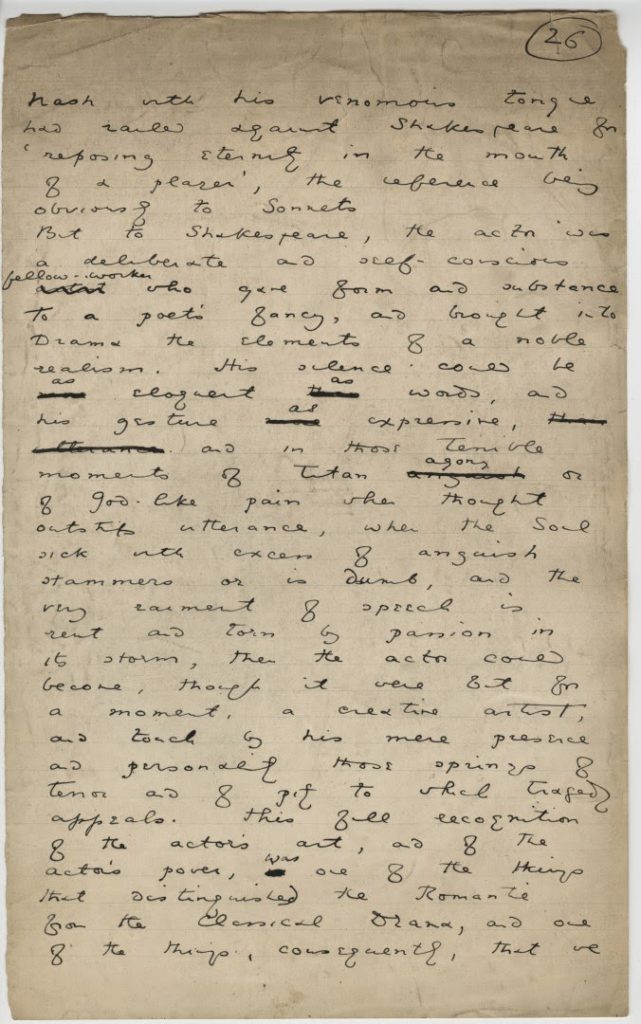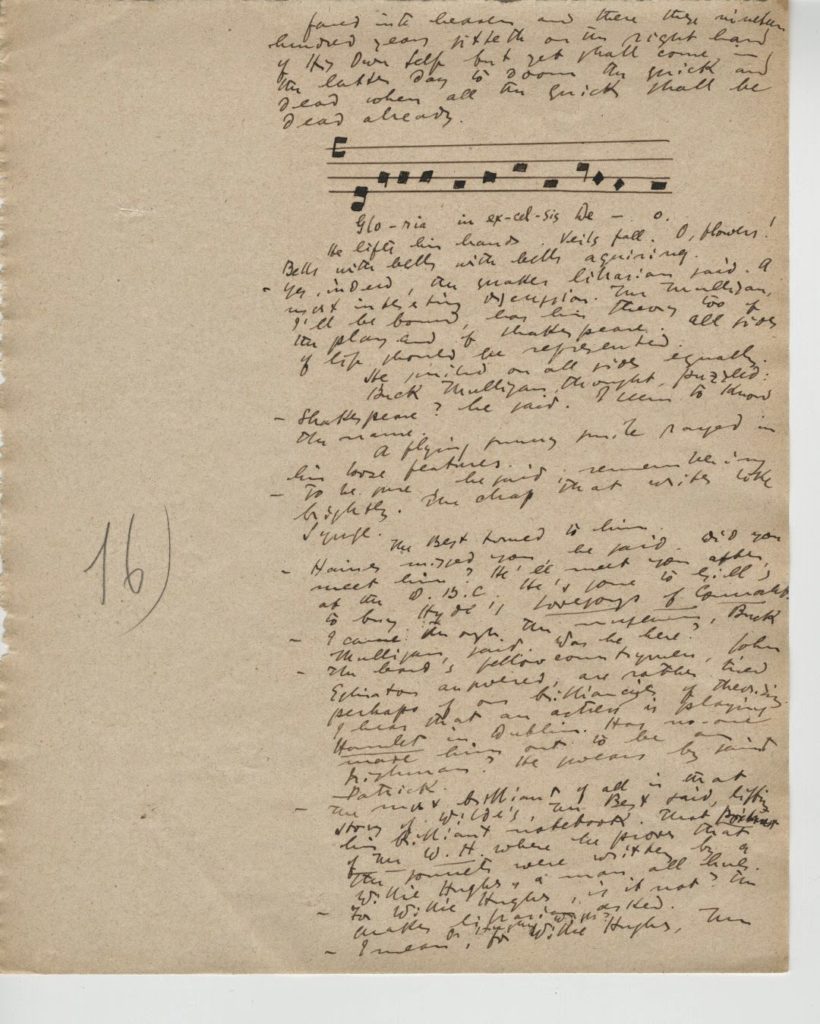Today marks the 285th birthday of Thomas Tyrwhitt. Who is Thomas Tyrwhitt, you ask? Tyrwitt was an 18th-century scholar (born March 27, 1730) who, among many much more important contributions to the study of classical and English literature, came up with the theory that Shakespeare’s sonnets were dedicated to a man named W. Hughes. This theory would later be expanded and played with in Oscar Wilde’s short story “the Portrait of Mr. W.H.,” the manuscript of which lives here at the Rosenbach.
To go back to the beginning, the first edition of Shakespeare’s sonnets was published in 1609 by Thomas Thorpe. The dedication page (which has Thorpe’s initials at the bottom) reads:
To the onlie begetter of
These insuing sonnets
Mr. W.H. all happinesse
And that eternitie
Promised
by
Our ever-living poet
Wisheth
The well-wishing
Adventurer in
Setting
Forth
The first question is, whether this dedication comes from Shakespeare or Thorpe. The second is the identity of Mr. W.H.. There is also a third question, which is whether Mr. W.H. can be identified with the “fair youth” to whom many of the sonnets are addressed.
Going back to our birthday boy, in looking at Sonnet 20, Tyrwhitt noted that the word “Hewes” was capitalized and italicized in the line “A man in hew, all Hews in his controlling.” In other sonnets the word “Will” is capitalized and italicized as a clear play on the name, so Tyrwitt conjectured that the same was true of Hewes and that the enigmatic dedicatee was W. Hughes.
Tyrwitt shared his thoughts with fellow scholar Edmond Malone (the same man who exposed William Henry Ireland’s Shakespearean forgery) and in a 1780 book Malone concurred that “Mr. Tyrwitt has pointed out to me a line…which inclines me to think that the initials W.H. stand for W. Hughes.” In 1944, the sonnet scholar H.E. Rollins claimed that with this endorsement Malone “created a spook harder to drive away than the ghost of Hamlet’s father.” Malone also clearly endorsed the idea that Mr. W.H. was the youth of the sonnets, writing that “To this person, whoever he was, one hundred and twenty of the following poems are addressed.”
Tyrwitt and Malone were not alone in speculating on Mr. W.H. and many other candidates have been advanced over the years. Oscar Wilde picked up on the debate and made it the central theme of his short Story “The Portrait of Mr. W.H.” which was published in Blackwood’s Magazine in 1889 and subsequently expanded. In the story, a man named Cyril Graham tries to convince his friend Erskine that Mr. W.H. as “Willie Hughes,” a boy who played the female roles in Shakespeare’s plays. Graham goes so far as to fake a painting of Willie Hughes with the book. The narrator of the story also gets involved and is first convinced and then subsequently disillusioned of the theory.
 |
| Oscar Wilde, The portrait of Mr. W. H.: autograph manuscript. EL3 W672p 921. The Rosenbach of the Free Library of Philadelphia. |
James Joyce picks up on these earlier literary strands in his all-encompassing Ulysses. The “Scylla and Charybdis” episode takes place in the National Library of Ireland and much of the episode revolves around Shakespeare as Stephen Dedalus lays out his theory that Shakespeare’s work echoes his personal history. Eventually the Shakespeare discussion swings around to Wilde:
amending his gloss easily. Of course it’s all paradox, don’t you know,
Hughes and hews and hues, the colour, but it’s so typical the way he
works it out. It’s the very essence of Wilde, don’t you know. The light
touch.
librarian was asking. The mocker is never taken seriously when he is
most serious.
 |
| James Joyce. Ulysses: autograph manuscript. “Scylla and Charybdis episode.” EL4. J89ul 922 MS. The Rosenbach of the Free Library of Philadelphia. |
Interest in the identity of the mysterious Mr. W.H. is still with us. In February, the journal Notes and Queries published an article by Geoffrey Cavanaugh putting forth yet another candidate (a man connected with Thorpe rather than Shakespeare) and hoping to lay the case to rest. In a report in the Guardian, Professor Stanley Wells, “the leading British Shakespeare scholar,” says that the new candidate is “better than any other suggestion so far.
It’s very interesting.” He also pointed out, “If it were agreed by scholars, this would be pretty momentous.
People have spilled an enormous quantity of ink trying to identify this
figure.” So, on his birthday, let’s remember the ink spiller Thomas Tyrwhitt and his long-lasting effect on this fascinating debate.
 Kathy Haas is the Associate Curator at The Rosenbach of the Free Library of Philadelphia and the primary poster at the Rosen-blog.
Kathy Haas is the Associate Curator at The Rosenbach of the Free Library of Philadelphia and the primary poster at the Rosen-blog.

I am researching The Portrait of Mr W.H. now. Is there any way to view the manuscript you hold online? Or can I get a copy made?
Thanks,
Geoff
Geoff, the manuscript is not online, but if you get in contact with our registrar, Jobi Zink, she can help you with images. Our librarian, Elizabeth Fuller, can also provides you with more information about the manuscript. You can contact them via https://www.rosenbach.org/staff-directory
Geoff, if you are still working with "The Portrait of Mr. W. H." you should contact Elizabeth Fuller. I was at the Rosenbach in January of this year doing research on the manuscript for my thesis, and the pages have been photographed now. – Rebecca Jones